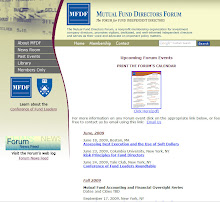On December 22, 2008, the "Worker Retiree, and Employer Recovery Act of 2008" was signed in to law suspending for 2009 required minimum distributions (or "RMDs") from qualified defined contribution plans for individuals over 70 1/2. This relief applies to IRA, SEP-IRA, SIMPLE IRA, 401(k) plan, money-purchase plan, profit-sharing plan, and any other qualified defined contribution retirement plan participants and their beneficiaries. The suspension does not apply to defined benefit plans.
This suspension of RMDs for a single year may complicate the retirement income planning of those at or approaching 70 1/2, and it is important for those affected to understand how this changes things for them and their beneficiaries. Among other things, the suspension means:
This suspension of RMDs for a single year may complicate the retirement income planning of those at or approaching 70 1/2, and it is important for those affected to understand how this changes things for them and their beneficiaries. Among other things, the suspension means:
- Individuals who reach the age of 70 1/2 or older in 2009 will not be subject to required minimum distributions for calendar year 2009.
- Holders of inherited accounts will also not be required to take a minimum distribution for 2009.
- Retirement plan account holders who do not take a distribution in 2009 will not be able to roll over this distribution to the extent that this distribution is less than or equal to the amount that would have been required in 2009 absent this suspension.
- 2009 is disregarded in determining the five year period for Beneficiaries who have chosen to use the five year rule after the death of the original holder.
- Individuals who reached age 70 1/2 in 2008 and chose to defer their first RMD until April 1, 2009 do not get the benefit of the RMD suspension and are still required to take that distribution.





